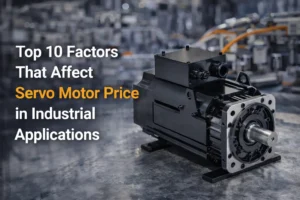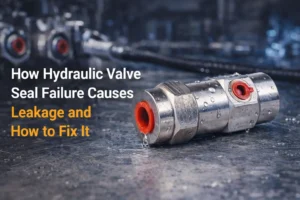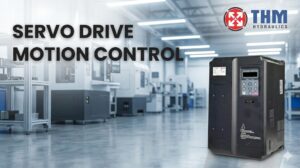Servo motors are essential for many applications because they provide precise control and efficient operation. We want to help you get the best performance from your servo motors. In this blog, we’ll discuss the key factors affecting servo motor performance and share some tips on optimizing it.
What is a Servo Motor?
A servo motor is a special type of motor that offers precise control of movement, speed, and power. It’s commonly used in robotics, CNC machines, and automation systems where accurate control is crucial.
Factors Affecting Servo Motor Performance
- Torque and Speed
- Torque: Make sure your servo motor can provide enough torque for your tasks. If it doesn’t, the motor might not work well or could get damaged.
- Speed: Choose a motor that matches the speed requirements of your application. High-speed tasks need motors designed to handle those speeds efficiently.
- Power Supply Quality
A stable and clean power supply is important. Voltage changes and electrical noise can affect how well the motor works. Use a regulated power supply to keep performance consistent.
- Temperature Control
Servo motors produce heat when they run. Proper cooling and ventilation are necessary to prevent overheating, which can harm the motor’s performance and lifespan.
- Feedback and Control Systems
Accurate feedback from sensors is key for precise control. Make sure your feedback systems are well-calibrated and maintained. Advanced control methods can improve performance even more.
- Load Characteristics
The load attached to the servo motor affects its performance. Knowing the load’s features, like its inertia and friction, helps select and properly tune the motor.
- Maintenance and Lubrication
Regular maintenance, including lubrication, keeps the motor running smoothly and reduces wear. Follow the manufacturer’s guidelines for maintenance.
Tips for Optimizing Servo Motor Performance
- Choose the Right Motor
Pick a servo motor that fits your application’s needs. Consider torque, speed, and power. Getting advice from experts or using selection tools can help.
- Adjust Control Settings
Fine-tune the motor’s control settings. Adjust parameters like gain and acceleration to improve performance. Test different settings to find the best ones.
- Use Quality Components
High-quality parts, like power supplies and sensors, make the motor more reliable and efficient. Invest in good components for better performance.
- Advanced Control Techniques
Techniques like PID control provide precise motor control. These advanced methods adapt to changes and improve efficiency.
- Monitor Performance
Set up systems to track motor performance in real time. This helps spot issues early and allows for timely maintenance and adjustments.
Conclusion
Servo motors are vital for many modern systems due to their precise control and efficiency. By understanding the factors that affect their performance and following the tips provided, you can get the most out of your servo motors. At THM HUADE HYDRAULICS, we offer top-quality servo motors and accessories to meet your needs. Contact us today to learn more about how we can help you achieve the best application performance.



